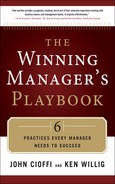The process is more important than the plan
Unfortunately for business owners and managers, this advice is not for them. The true value of creating a business plan is the process of creating it. The plan itself is of much less value. This is what business owners haven’t been taught (and it’s not their fault. No one taught them!).
Dwight Eisenhower, the 34th president of the United States, was a true advocate of this concept, and he certainly knew a thing or two about planning. Previous to becoming the 34th president of the United States, he was a very-rare five-star general in the Army and the Supreme Commander, Allied Forces in Europe during World War II. He famously stated: “In preparing for battle I have always found that plans are useless, but planning is indispensable.”
Eisenhower knew that the best of his plans could quickly become obsolete under the fast changing conditions of a battlefield. He needed a high-level ability to plan in order to stay ahead of the enemy’s maneuvers.
So how does all of this translate to your business? What do we mean when we say that the planning process is more important than the plan itself?
We’ve often had many business owners rail against the creation of a business plan by telling us that their industry, competitors, or opportunities are simply moving too fast. By the time they would write a business plan, they say, the conditions will have changed so drastically that the plan will be useless. If only they were in a stable and predictable environment, then it would make more sense to have a plan.
Interestingly, there is some truth to their observation. When conditions are stable, it’s relatively easy to adhere to a plan. Unfortunately, such conditions rarely exist. How often have conditions been stable in your organization and industry for any real length of time?
When conditions are unstable, however, the planning process is of much greater value than a specific plan. Let’s look at another common metaphor for business to see why.
Business owners often are told that creating a business plan is analogous to making a plan for a long sailing adventure. Before setting sail, the captain should make a plan. He needs to predict the expected sea and weather conditions to outfit the boat properly, plan daily progress, and measure and monitor that progress. So too, say many sage advisors, should business owners “chart their course.”
Let’s look at two different scenarios to test the value of those pre-trip preparations. We’ll consider first a condition of great weather and no troubles, and then we’ll consider a condition of great turmoil and constant upset.
Okay, we admit that our story is a bit simplified, but we hope to convince you that a planning process is needed most when conditions are fluid (pun intended).
It is when conditions are ever-changing, not when they are predictable, that it is most important to have an excellent planning process. Such a process considers real life conditions and adapts to those conditions constantly.
Conversely, it is when conditions don’t change at all that following the same plan works best. We just don’t know of any businesses where that occurs for any real length of time.
Take a look at your own organization for a moment. How many months in a row can you count in which there were no, or relatively few, changes in your own company or in the business environment in which you operate? How many months in a row has your business enjoyed calm seas and beautiful weather like our lucky sailor?
There are, of course, owners and managers who merely continue doing whatever they did yesterday or last month, regardless of any changes in their business environment. And they might actually be fortunate enough to succeed. But we suspect that you’ve got too much at stake in your organization to leave things to luck or good fortune.
